chloroquine phosphate for fish
Understanding Chloroquine Phosphate: Uses, Costs, and Key Medical Insights
Learn all about chloroquine phosphate for fish, its medical uses, pricing, and how it affects the human body, including the risk of elevated serum transaminase. Get the facts about its cost and potential side effects.
Introduction: What Is Chloroquine Phosphate?
Chloroquine phosphate is a chemical compound traditionally used to treat malaria, an infection caused by the Plasmodium parasite. Over the years, this compound has been used not only for its antimalarial properties but also for other medical purposes, including the treatment of autoimmune diseases such as lupus and rheumatoid arthritis.
about chloroquine’s impact on human health
However, chloroquine phosphate is not just limited to human use. It is also commonly used in aquaculture to treat certain fish diseases, including those caused by parasites and protozoa. Despite its widespread use, there are concerns about chloroquine’s impact on human health, particularly in relation to liver function and the associated risks of elevated serum transaminase levels.
various uses of chloroquine phosphate
we will explore the various uses of chloroquine phosphate, its cost and pricing, and the potential side effects of its use, including whether it can cause elevation in serum transaminase. We will also delve into its role in the pharmaceutical field and the intriguing interaction with clathrin, a protein involved in cellular processes.
Chloroquine Phosphate for Fish: An Overview
Chloroquine phosphate has been used in the fish farming and aquaculture industry for several decades. It is primarily employed to treat parasitic infections in fish, such as those caused by protozoa like Ichthyophthirius multifiliis, a parasite that affects freshwater fish. Chloroquine’s ability to target these parasites makes it a vital tool in ensuring the health of fish populations in aquaculture.
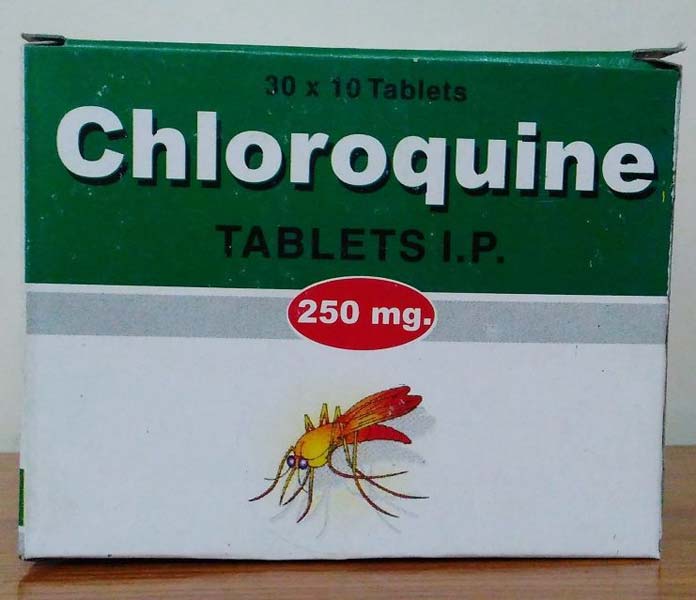
Uses of Chloroquine Phosphate in Aquaculture:
1.Parasite Treatment:
Chloroquine phosphate is used to eliminate parasites in aquarium fish and farmed fish. It works by disrupting the parasite’s cellular function, thereby preventing it from causing harm to the fish.
2.Treatment of Protozoal Infections:
Protozoan infections can cause significant damage to fish, and chloroquine phosphate is effective in clearing these infections.
3.Anti-inflammatory Effects:
Chloroquine also has some anti-inflammatory properties that help in managing chronic conditions in fish.
the use of chloroquine phosphate
However, it’s important to note that the use of chloroquine phosphate for fish is regulated in many countries to ensure it does not negatively impact the environment or cause harm to aquatic ecosystems. In addition, aquaculture practices must be mindful of residue levels in fish, as these can affect consumer safety.
chloroquine and clathrin
Chloroquine and Clathrin: The Cellular Mechanism
Chloroquine and clathrin mechanism of action extends beyond its use as an antimalarial agent. In cellular biology, chloroquine has been found to interact with clathrin, a protein that plays a critical role in the process of endocytosis—the method by which cells absorb external substances. This interaction is crucial to understanding how chloroquine affects the immune system and cellular functions.chloroquine phosphate for fish
What is Clathrin?
Clathrin is a protein that forms a triskelion-shaped structure on the surface of vesicles, which are small bubble-like structures that transport molecules within and between cells. Clathrin-coated vesicles are involved in the transport of molecules into cells through the process of endocytosis.
Chloroquine’s Role with Clathrin:
Chloroquine can interfere with clathrin-mediated endocytosis, potentially disrupting normal cellular processes. This interaction has implications for drug delivery systems, as chloroquine might influence the uptake of certain drugs and therapies within cells. Moreover, this mechanism of action helps explain why chloroquine has been researched for its antiviral properties, as it can potentially disrupt the entry of viruses into host cells.chloroquine phosphate for fish
Understanding the interaction between chloroquine and clathrin
Understanding the interaction between chloroquine and clathrin has spurred further research into its broader implications in treating diseases, such as certain viral infections and autoimmune disorders. However, these effects are still being studied and should be monitored in clinical settings.
chloroquine phosphate cost
Chloroquine Phosphate Cost: What You Should Know
One of the primary concerns for patients and healthcare providers when considering medications like chloroquine phosphate cost . The price of chloroquine phosphate can vary widely depending on the region, dosage, and whether the medication is being used for human or veterinary purposes.
Factors That Affect the Cost of Chloroquine Phosphate:
1.Manufacturing Source:
The cost of chloroquine phosphate can differ depending on whether it is produced by brand-name pharmaceutical companies or generic drug manufacturers.chloroquine phosphate for fish
2.Geographic Location:
Prices for chloroquine phosphate vary depending on the country or region due to differences in healthcare systems, regulations, and supply chains.
3.Healthcare Coverage:
In countries with universal healthcare or robust insurance programs, the cost may be covered by insurance, reducing the financial burden on the patient.chloroquine phosphate for fish
Average Price for Chloroquine Phosphate:
For Human Use:
The cost for chloroquine phosphate (typically used for treating malaria or autoimmune diseases) can range between $30 and $150 per bottle in some regions. The price fluctuates depending on dosage and where it’s purchased, with prices sometimes being higher if purchased without insurance.chloroquine phosphate for fish
For Fish Use:
When purchasing chloroquine phosphate for fish treatment in aquaculture, the price can range from $20 to $100 for a sufficient quantity depending on the brand and the volume purchased.
Chloroquine Phosphate Price
Analyzing Global Differences
chloroquine phosphate price may vary globally due to a range of factors such as local production, government subsidies, and the economic conditions of each country. Here’s a general breakdown of chloroquine phosphate price variations based on geographical location:
United States:
Chloroquine phosphate prices can be higher in the U.S. due to factors like the lack of a robust public health insurance system for certain individuals, as well as higher drug prices in the private sector.chloroquine phosphate for fish
Canada:
In Canada, chloroquine phosphate prices are typically lower due to price controls on pharmaceuticals, and the cost is often covered under provincial drug programs.chloroquine phosphate for fish
Europe:
Most European countries have national health systems, which often subsidize the cost of chloroquine phosphate, making it more affordable to patients.chloroquine phosphate for fish
India and Other Low-Cost Markets:
In countries with lower production costs, chloroquine phosphate is usually available at much lower prices, making it more accessible for malaria treatment.chloroquine phosphate for fish
Can Chloroquine Cause Elevation in Serum Transaminase
can chloroquine cause elevation in serum transaminase, are enzymes found in the liver that help with the metabolism of amino acids. An elevation in serum transaminase levels can indicate liver damage or dysfunction. One of the side effects of chloroquine phosphate is its potential to cause liver toxicity, leading to an elevation in these enzymes.chloroquine phosphate for fish
How Does Chloroquine Affect Liver Function?
Chloroquine, when used in high doses or for prolonged periods, has been shown to cause liver damage in some patients. This damage can result in increased levels of serum transaminases—specifically aspartate aminotransferase (AST) and alanine aminotransferase (ALT)—which are key indicators of liver function.chloroquine phosphate for fish
The mechanism behind chloroquine-induced liver toxicity
The mechanism behind chloroquine-induced liver toxicity is not fully understood, but research suggests that chloroquine may cause oxidative stress in liver cells, leading to inflammation and damage. Additionally, chloroquine has been linked to the development of conditions such as hepatitis and cirrhosis in rare cases.chloroquine phosphate for fish
Signs of Elevated Serum Transaminase Due to Chloroquine:
Patients taking chloroquine should be monitored for signs of liver damage, including:
- Fatigue
- Jaundice (yellowing of the skin or eyes)
- Dark urine
- Abdominal pain
- Loss of appetite
adjust the dosage or discontinue the medication
Regular blood tests that measure liver enzyme levels are typically recommended for patients taking chloroquine, especially if they are on long-term therapy. If elevated transaminase levels are detected, the patient’s doctor may adjust the dosage or discontinue the medication.chloroquine phosphate for fish
Is Chloroquine Safe for Long-Term Use?
While chloroquine is generally considered safe for short-term use, long-term administration should be carefully monitored due to the potential for adverse effects on the liver and other organs. It’s particularly important for individuals who are on long-term chloroquine therapy for conditions such as lupus or rheumatoid arthritis to undergo regular blood tests and follow their healthcare provider’s recommendations.chloroquine phosphate for fish
Possible Long-Term Side Effects of Chloroquine Include:
Retinal Damage:
Prolonged use of chloroquine may lead to eye damage, particularly in individuals who take high doses over extended periods.chloroquine phosphate for fish
Muscle Weakness:
Some individuals may experience muscle weakness or even damage after prolonged use.chloroquine phosphate for fish
Gastrointestinal Issues:
Nausea, vomiting, and abdominal pain are common side effects that can worsen with long-term use.chloroquine phosphate for fish
Conclusion: Chloroquine Phosphate – A Complex and Essential Drug
Chloroquine phosphate is a versatile and essential medication with a wide range of uses, from treating malaria to managing autoimmune diseases, and even as a treatment for fish in aquaculture. However, it’s not without its risks, particularly in terms of its cost, liver toxicity, and potential interactions with cellular processes like clathrin-mediated endocytosis.
price can vary significantly depending on where it is purchased
While its price can vary significantly depending on where it is purchased and how it is used, chloroquine phosphate remains a valuable tool in both human medicine and veterinary applications. Patients should be aware of the potential side effects, such as liver enzyme elevation, and ensure they are under proper medical supervision when using this drug.chloroquine phosphate for fish
critical benefits
In summary, chloroquine phosphate offers critical benefits but requires careful management to avoid adverse effects. Whether you are using it for fish treatment, managing malaria, or dealing with a chronic condition, it’s crucial to stay informed about the potential risks and work closely with your healthcare provider.chloroquine phosphate for fish
Frequently Asked Questions (FAQs)
1.What is the cost of chloroquine phosphate for fish?
The price of chloroquine phosphate for fish typically ranges from $20 to $100, depending on the brand and quantity purchased.chloroquine phosphate for fish
2.Can chloroquine cause liver damage?
Yes, chloroquine can cause liver toxicity, leading to elevated serum transaminases (AST and ALT). Regular monitoring of liver function is recommended.
3.Is chloroquine safe for long-term use?
Long-term use of chloroquine requires close monitoring due to potential side effects, including liver damage, muscle weakness, and eye damage.
4.How does chloroquine interact with clathrin?
Chloroquine can disrupt clathrin-mediated endocytosis, affecting cellular processes and potentially influencing drug delivery and viral entry.
5.Where can I purchase chloroquine phosphate at the best price?
Prices for chloroquine phosphate can vary depending on location and usage (human or veterinary). Compare prices from reputable online pharmacies, aquaculture suppliers, and insurance providers to find the best deals.WE HAVE OTHER RELATED PRODUCT CATEGORY SUCH AS PILLS, RESEARCH CHEMICAL AND PSYCHEDELIC
Chloroquine is used to prevent or treat malaria
Chloroquine is used to prevent or treat malaria caused by mosquito bites. Chloroquine belongs to a class of drugs known as antimalarials. Chloroquine 250mg
antimalarials and amebicides
Chloroquine phosphate is used to prevent and treat malaria. It is also used to treat amebiasis. Chloroquine phosphate is in a class of drugs called antimalarials and amebicides.chloroquine phosphate for fish
other uses
This medication is typically used for the prevention of malaria. It may also have other uses. Chloroquine 250mg.chloroquine phosphate for fish
buy chloroquine online usa
What is Chloroquine 250mg?
Chloroquine 250mg is a medication used to prevent and to treat malaria in areas where malaria is known to be sensitive to its effects. Certain types of malaria, resistant strains, and complicated cases typically require different or additional medication. Buy Chloroquine 250mg online

used for amebiasis
Occasionally it is used for amebiasis that is occurring outside the intestines, rheumatoid arthritis, and lupus erythematosus. It is taken by mouth. It is also being used experimentally in COVID-19 as of 2020.Chloroquine phosphate had been also proposed as a treatment for SARS-CoV with in vitro tests successfully inhibiting the virus.
Pack content: 10 x 10 Tablets.
Molar mass: 319.872 g/mol
CAS ID: 54-05-7
Formula: C18H26ClN3
Trade name: Aralen, others
Elimination half-life: 1–2 months
Metabolism: Liver
Chloroquine 250mg, an old malaria drug, may help treat novel coronavirus, doctors say.
What do malaria and COVID-19 have in common? On the surface, not much. But according to early research, an old malaria drug called chloroquine might also work for the new coronavirus.chloroquine phosphate for fish
drug work to treat COVID-19
Could a decades-old malaria drug work to treat COVID-19? Elon Musk seems to think so, recently tweeting that it “might be worth considering chloroquine” for COVID-19. Although data are spare, studies so far seem to back up the billionaire entrepreneur’s suggestion.
Chloroquine 250mg or hydroxychloroquine,
Chloroquine 250mg, or hydroxychloroquine, has been used to treat malaria since 1944. It can be given before exposure to malaria to prevent infection, and it can also be given as treatment afterward. Buy Chloroquine 250mg online
Malaria is a disease that is caused by a parasite
Malaria is a disease that is caused by a parasite, unlike COVID-19. Nevertheless, laboratory studies show chloroquine is effective at preventing as well as treating the virus that causes severe acute respiratory syndrome, or SARS, a close cousin of COVID-19. Buy Chloroquine 250mg online
An effective treatment for #Coronavirus #COVID-19 has been found in a common anti-malarial drug – Chloroquine 250mg.buy chloroquine online usa
An Effective Treatment for Coronavirus (COVID-19) is Chloroquine phosphate.
Order chloroquine phosphate online for coronavirus treatment
Buy chloroquine phosphate online to cure coronavirus
Order chloroquine order to treat and cure coronavirus
(1)
Chloroquine Phosphate
Imprint: 0115 2790
Strength: 250 mg
Color: White
Size: 10.00 mm
Shape: Round
Drug Class: Amebicides Antimalarial quinolines
Labeler / Supplier: Global Pharmaceuticals
(2)
Chloroquine Phosphate
Imprint: RF 27
Strength: 250 mg
Color: White
Shape: Round
Drug Class: Amebicides Antimalarial quinolines
Labeler / Supplier: Ranbaxy Pharmaceuticals Inc.
(3)
Chloroquine Phosphate
Imprint: 7010
Strength: 500 mg
Color: White
Size: 13.00 mm
Shape: Round
Drug Class: Amebicides Antimalarial quinolines
Labeler / Supplier: Global Pharmaceuticals
(4)
Chloroquine Phosphate
Imprint: WW 125
Strength: 500 mg
Color: Pink
Size: 13.00 mm
Shape: Round
Drug Class: Amebicides Antimalarial quinolines
Labeler / Supplier: West-Ward Pharmaceutical Corporation
Buy Chloroquine 250mg online
Uses:
Chloroquine is used to prevent or treat malaria caused by mosquito bites. Chloroquine belongs to a class of drugs known as antimalarials. Chloroquine 250mg
Chloroquine phosphate is used to prevent and treat malaria. It is also used to treat amebiasis. Chloroquine phosphate is in a class of drugs called antimalarials and amebicides.chloroquine phosphate for fish
This medication is typically used for the prevention of malaria. It may also have other uses. Chloroquine 250mg
buy chloroquine online |where to buy chloroquine online |buy chloroquine online us | Chloroquine 500 mg buy online |Hydroxychloroquine for sale |
Treatment:
Indicated for acute attacks of malaria due to P. vivax, P. malariae, P. ovale, and susceptible strains of P. falciparum. Chloroquine 250mg
Acute attack:
1 g (600-mg base) PO, THEN
500 mg (300 mg-base) PO after 6-8 hr THEN
500 mg (300 mg-base) PO at 24 hr and 48 hr after initial dose
Total dose of 2500 mg (1500 mg-base) in 3 days
Amebiasis, Extraintestinal:
1 g (600 mg base) PO qDay for 2 days, THEN
500 mg (300 mg base) qDay for 14-21 days
Dosage Modifications:
Hepatic impairment
Chloroquine phosphate tablets may concentrate in the liver; use with caution in patients with hepatic disease or alcoholism or in conjunction with known hepatotoxic drugs
Dosing Considerations:
Limitations of use
Do not use for the treatment of complicated malaria (high-grade parasitemia and/or complications [eg, cerebral malaria, acute renal failure]).Do not use for malaria prophylaxis in areas where chloroquine resistance occurs, Concomitant use with an 8-aminoquinoline drug is necessary for treatment of hypnozoite liver stage forms of P.vivax and P.ovale. Chloroquine 250mg
CLINICAL PHARMACOLOGY:
Chloroquine is rapidly and almost completely absorbed from the gastrointestinal tract, and only asmall proportion of the administered dose is found in the stools.chloroquine phosphate for fish
Excretion of chloroquine
Approximately 55% of the drug in the plasma is bound to nondiffusible plasma constituents. Excretion of chloroquine is quite slow,but is increased by acidification of the urine. Chloroquine is deposited in the tissues in considerableamounts. Chloroquine 250mg
concentrate the drug
In animals, from 200 to 700 times the plasma concentration may be found in the liver,spleen, kidney, and lung; leukocytes also concentrate the drug. The brain and spinal cord, incontrast, contain only 10 to 30 times the amount present in plasma.WE HAVE OTHER RELATED PRODUCT SUCH AS Hydromorphone, Fioricet,xanax
Chloroquine undergoes appreciable degradation in the body
Chloroquine undergoes appreciable degradation in the body. The main metabolite isdesethylchloroquine, which accounts for one fourth of the total material appearing in the urine;bisdesethylchloroquine, a carboxylic acid derivative, and other metabolic products as yetuncharacterized are found in small amounts. Slightly more than half of the urinary drug productscan be accounted for as unchanged chloroquine. Chloroquine 250mg
Microbiology:
Mechanism of Action: Chloroquine, a 4-aminoquinoline, is an anti-protozoal agent.The precise mechanism by which chloroquine exhibits activity is not known. Chloroquine, may exert its effect against Plasmodium species by concentrating in the acid vesicles of the parasite and by inhibiting polymerization of heme. It can also inhibit certain enzymes by its interaction with DNA. Chloroquine 250mg
Activity in Vitro and in Clinical Infections:
Chloroquine is active against the erythrocytic forms of susceptible strains of Plasmodium falciparum, Plasmodium malariae, Plasmodium ovale, and Plasmodiumvivax.
Chloroquine is not active against the gametocytes and the exoerythrocytic
Chloroquine is not active against the gametocytes and the exoerythrocytic forms including the hypnozoite stage (P. vivax and P. ovale) of the Plasmodium parasites.In vitro studies with Chloroquine demonstrated that it is active against the trophozoites of Entamoeba histolytica. Chloroquine 250mg.
Drug Resistance:
Resistance of Plasmodium parasites to chloroquine is widespread (see INDICATIONS AND USAGE, Limitations of Use in Malaria and WARNINGS).Plasmodium parasites exhibiting reduced susceptibility to hydroxychloroquine also show reduced susceptibility to chloroquine.
chloroquine or hydroxychloroquine
Patients in whom chloroquine or hydroxychloroquine have failed to prevent or cure clinical malaria or parasitemia, or patients who acquired malaria in a geographic area where chloroquine resistance is known to occur should be treated with another form of antimalarial therapy (see WARNINGS and INDICATIONS AND USAGE, Limitations of Use). Chloroquine 250mg
adderall alternatives
Get adderall alternative such as clonazepam. hydrocodone, percocet, xanax, dilaudid and many more.chloroquine phosphate for fish

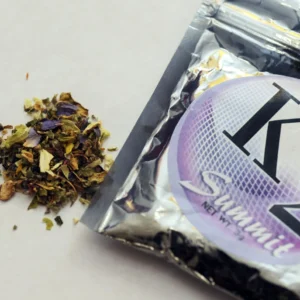
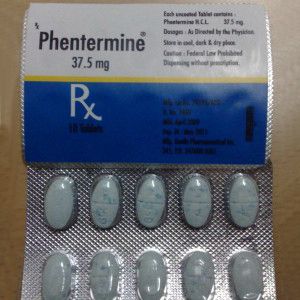
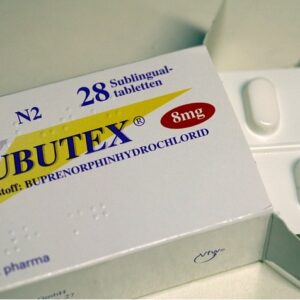
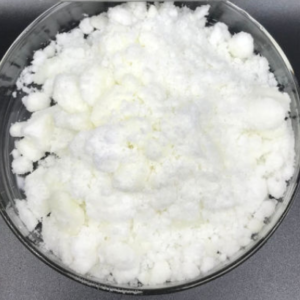
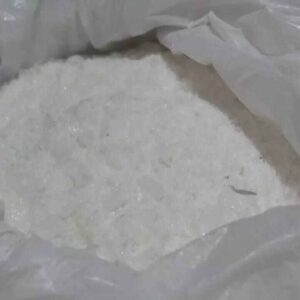
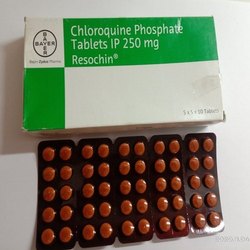
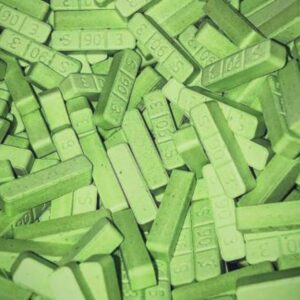
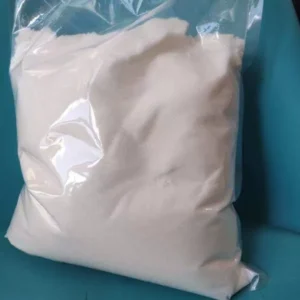
Reviews
There are no reviews yet.